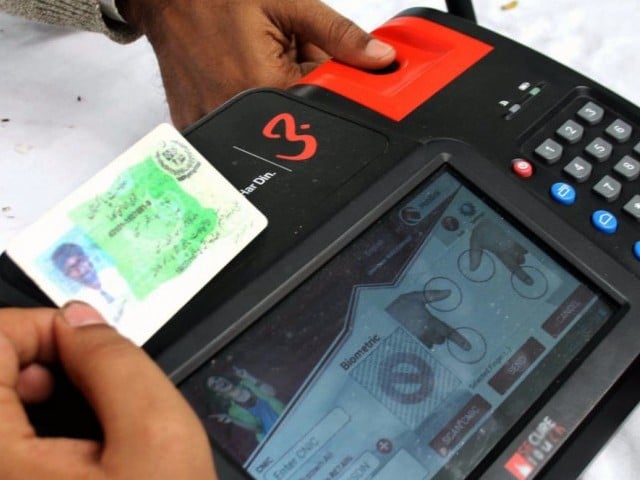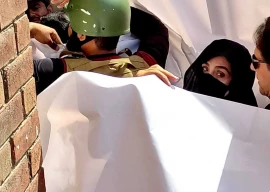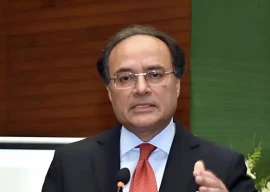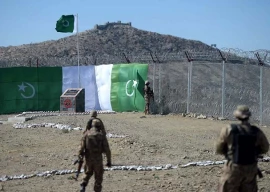
The federal government concerned by an increase in illegal and untraceable SIMs had earlier ordered cellphone users to verify their identities through fingerprints for a national database, with failure to do so leading to a cut off from the cellular network – an option unthinkable to many.
Read: Fight against terrorism: Defining moment
The national database is being compiled as part of the government’s 20-point plan to curb terrorism in the wake of the December 16 Peshawar school attack.
Read: Our darkest hour
Officials said the Taliban gunmen who stormed the army-run school killing 150 people, including 133 children, were using cellphones registered to one woman who had no obvious connection to the attackers.
Cellular companies have been given till April 15 to verify the owners of 103 million SIMs issued in the country, according to the Washington Post.
Read: SIM verification: First phase to begin on January 12
In the past six weeks, 53 million SIMs belonging to 38 million have been verified through biometric screening.
National Action Plan: 53 million SIMs verified via biometric system
Pakistan Telecommunication Authority (PTA) Chairman Syed Ismail Shah has said the remaining 49 million SIMs will be verified within 91 days.
The biometric verification system was introduced in August 2014, therefore, the SIMs registered before the system came into force would have to go through the verification process.
Read: Biometric SIM verification: a threat or opportunity for cellular firms?
“Once the verification of each and every SIM is done, coupled with blocking unverified SIMs, the terrorists will no longer have this tool,” a senior Interior Ministry official, told the Washington Post. “The government knows that it’s an arduous job, both for the cellular companies and their customers, but this has to be done as a national duty.”
In the past six weeks, 53 million SIMs belonging to 38 million residents have been verified through biometric screening, officials said.
Mobilink with around 32 per cent of the country’s cellular customers, has verified more than 15 million SIM cards in the past two weeks — costing it $15 million, according to NBC News.
"We've tried to reach far and wide, especially the villages, deploying hundreds of vans and kiosks to ensure people have enough time and access to register," Mobilink spokesperson Omar Manzur said.
"However, Pakistanis have large families, and users have a habit of buying multiple SIMs," he added.
Omar further said the verification is a massive, nationwide exercise with a tight deadline.
“We have sent out 700 mobile vans all across Pakistan to reach out to these far-flung areas, the villages and small towns.”
As per World Bank, the mobile phone subscription rate in the country stands at about 73 per cent, roughly equal to the rate in India.
With 50 million more SIM cards left to be verified, phone companies have dispatched teams to make customers aware of the deadline.
“In a country like this, where the infrastructure is not available in many areas, this looks unprecedented,” said Wahaj us Siraj, the chief executive officer of Nayatel, an Internet supplier.
Once the verification process is complete, it will be easier for police and intelligence officials to trace terrorists, former deputy director of the Federal Investigation Agency, Ammar Jaffri said.
Read: SIM verification drive may discourage foreign investors
The deputy director said cellphones been used in the past to detonate explosive devices as well as to make extortion calls.
“We have new technology now, and we shouldn’t be afraid of these things, we should face it,” said Jaffri.
“Watching people when they move, it’s natural: Every country does it,” he added.

1735196035-0/beyonce-(7)1735196035-0-165x106.webp)



1726732405-0/Express-Tribune-Web-(15)1726732405-0-270x192.webp)





1735025557-0/Untitled-(96)1735025557-0-270x192.webp)











COMMENTS (1)
Comments are moderated and generally will be posted if they are on-topic and not abusive.
For more information, please see our Comments FAQ